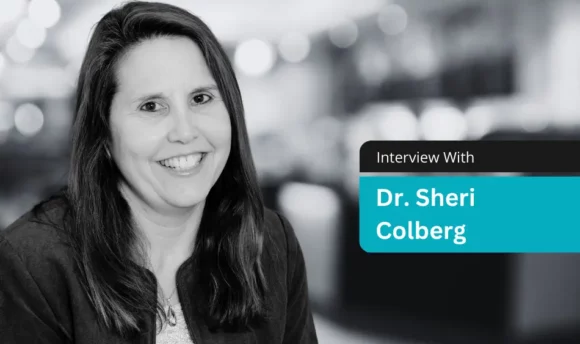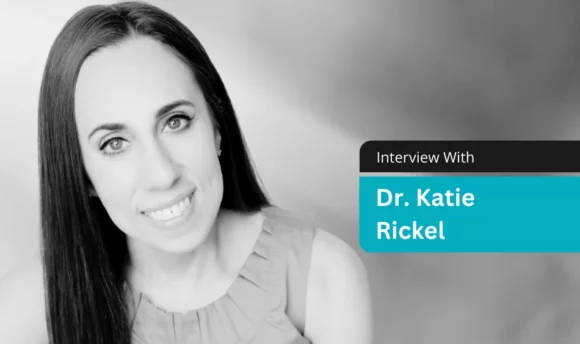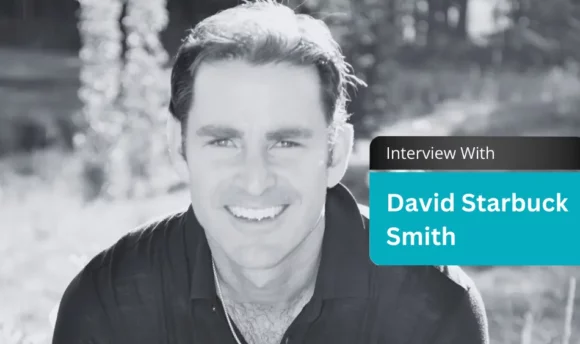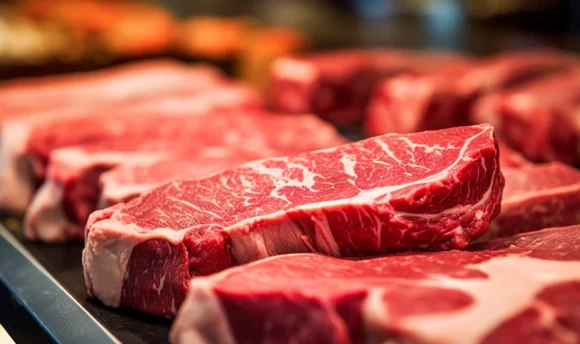Surviving the Holidays 101: Expert Advice for a Happy and Stress-Free Holiday Season
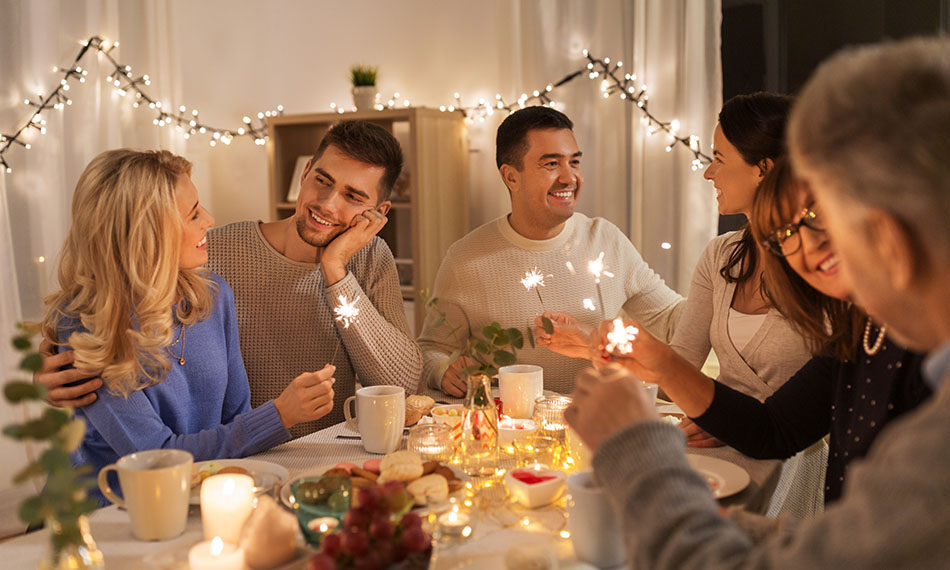
Christmas is a time for celebration and joy, but it can also be a time for overindulgence in fatty foods and alcohol.
Along with the negative health effects of these habits, many people experience post-holiday blues. After the season’s excitement has passed, they feel depressed and exhausted.
If you want to truly enjoy the holidays while also taking care of your health, Health Reporter has some expert advice.
Together with Edibel Quintero, RD, we uncovered the best tips on how to navigate the season’s temptations of fatty foods and alcohol, as well as maintain your mental well-being.
Conquering Overeating
A recent survey found that 24% of Americans still carry the excess weight they gained at the end of last year. Additionally, over 60% of Americans gain weight during the holiday season.1
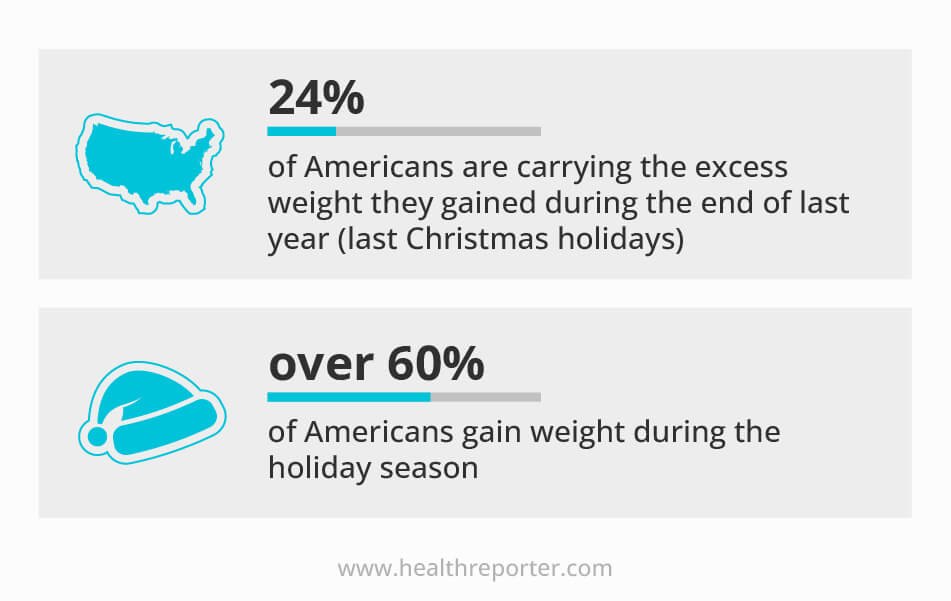
Overeating can cause excess weight and lead to other serious health problems such as sleep disorders, depression, gastrointestinal issues, and cardiovascular disorders.2
We all know it’s important to avoid overeating, but it can be challenging to resist the temptations of the holiday season. Here are some tips for preventing overindulgence:
#1 Don’t starve before the holiday
The first mistake that many people make is to go hungry before the holiday meal. If the regular regimen is violated, the body gets stressed and provokes overeating at the festive table.
#2 Start your meal with fresh vegetables
Vegetables will fill the stomach with water and fiber. Fiber promotes good digestion and gives a feeling of fullness.3
#3 Eat slowly
Slow food chewing helps to absorb the amount of food you need to saturate.4 Your body will receive a satiety signal in time, not when you overeat significantly. The time between the moment of saturation and the signal about it is 20 minutes.5
#4 Chew gum
At the feast, take breaks and chew gum – this way, you will occupy your mouth and restore the acid-base balance.
#5 Make limitations
Use smaller plates and serve food from the kitchen counter. This will make it harder for you to eat more than you need.
#6 Eat healthily and exercise after the holidays
When all the feasts are over, incorporate healthy foods into your diet and engage in physical exercise. It will support your body’s natural detoxification processes and help it recover from the effects of overindulging.
Healthy foods include salads, low-fat cheeses and curds, kefir, and light soups. Physical exercise can consist of yoga classes, dancing, or regular walks.
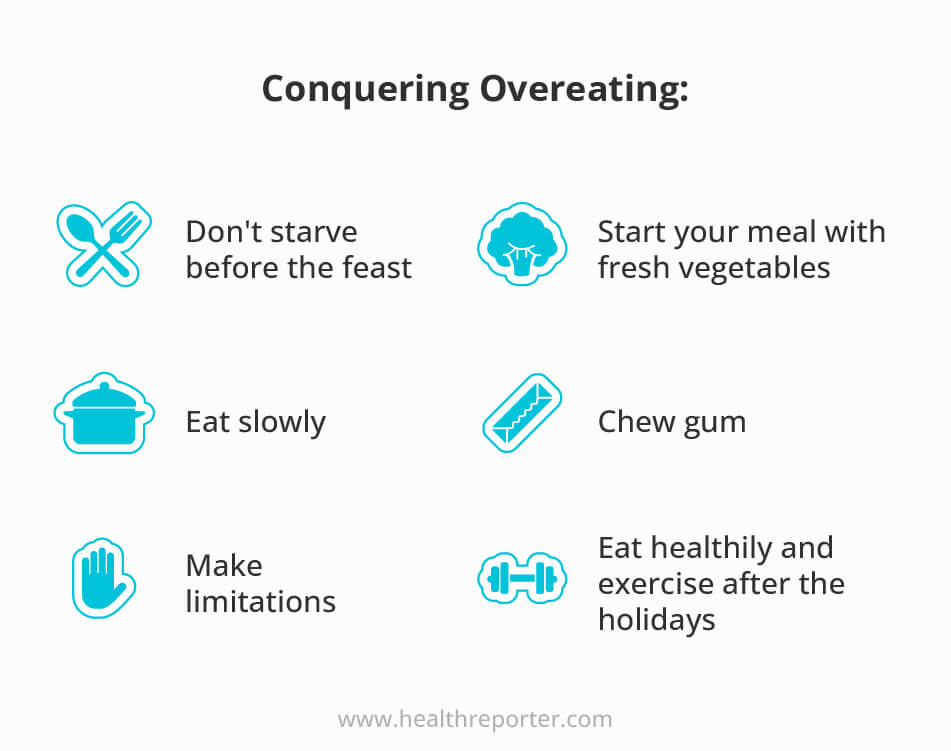
Avoiding and Alleviating Hangovers
Remember that there is no healthy alcohol or safe amount to drink.6 Consuming alcohol can have serious negative effects on your health, including liver damage and impaired judgment.7
So, how can you help your body deal with the effects of alcohol during the holiday season?
#7 Don’t drink on an empty stomach
Before the party, be sure to have dinner, preferably carbohydrates (pasta, rice, bread) or fats. These foods will slow down the absorption of alcohol and reduce alcohol concentrations in the blood.
#8 Consume plenty of water
Drink a glass of water before the feast: water quenches thirst and fills the stomach, dulling hunger and sensitivity to alcohol.8 And then repeat it between each serving of alcohol to keep the body hydrated.
#9 Drink slowly
Ideally, no more than one standard drink portion per hour.9
- 12oz (341ml) bottle of 5% beer, cider, or cooler
- 1.5oz (43ml) shot of 40% hard liquor (vodka, rum, whisky, gin, etc.)
- 5oz (142ml) glass of 12% wine
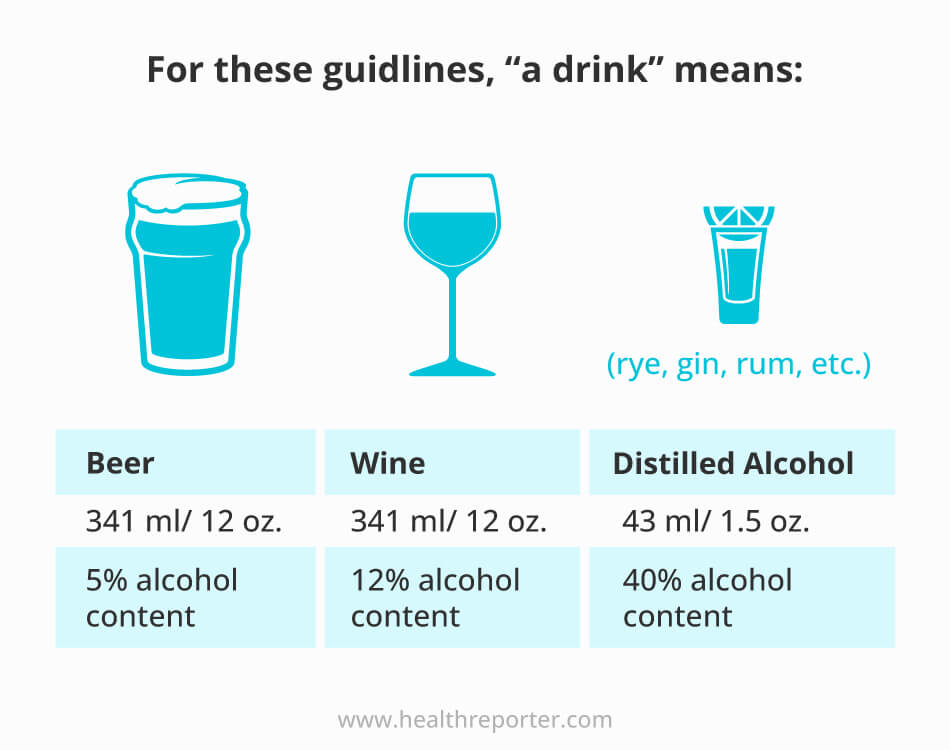
What if you still have a hangover?
Unfortunately, no drugs could instantly relieve a hangover.10 However, there are ways to survive this unpleasant period less painfully.
#10 Restore water, sugar, and salt balance
It is best to drink rehydration solutions (you can buy them in the pharmacy), sports drinks, and isotonic.
If you feel sick, do not push food into yourself. If the urge to vomit has passed and you are still feeling unwell, you may need to eat. Restore the salt balance with the help of light broth, scrambled eggs, kefir, or brine.
Alcohol also lowers blood sugar.11 Therefore, sweet tea with honey and fruit juice will help restore sugar levels.
#11 Let yourself rest
Remember to get plenty of sleep – a hangover can last up to 24 hours,12 and experiencing it in a dream might be most comfortable.
#12 Don’t treat the hangover with alcohol
A small dose of alcohol can relieve nasty morning symptoms as the body receives a psychoactive substance again.13 However, constant new doses of alcohol can lead to alcohol dependence.
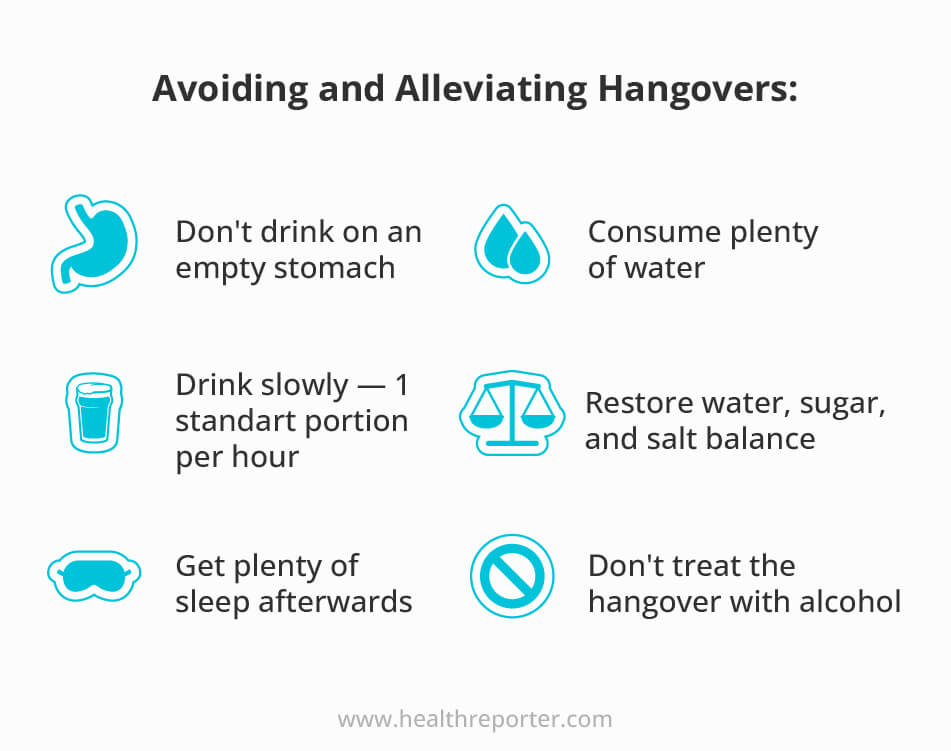
Busting the Post-holiday Blues
After the holidays, many people experience a sense of sadness and disappointment known as post-holiday blues. According to the research, 64% of Americans are affected by it.14
This can be caused by various factors, including the return to a daily routine, the financial strain of holiday spending, and the feeling of a letdown.
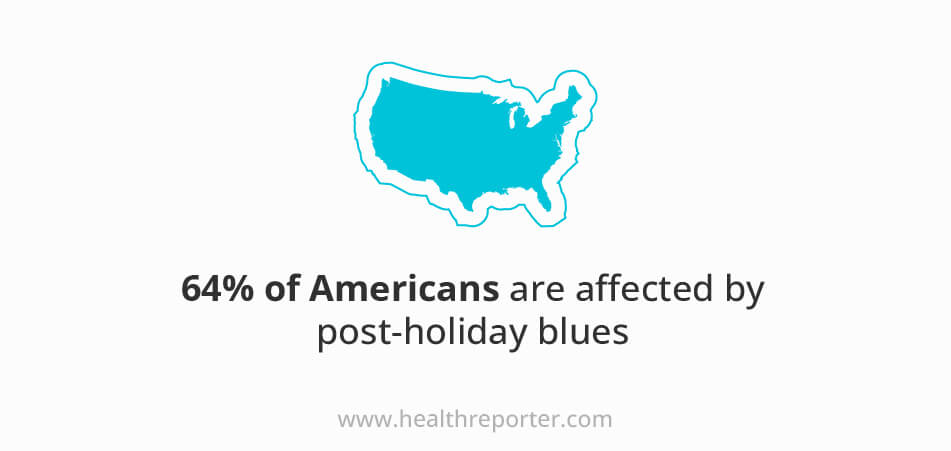
The blues after the holidays, unlike clinical depression, last less than two weeks.15 They may manifest as anxiety symptoms, like insomnia, lack of energy, irritability, depression, sadness, and melancholy.16
So, how can you cope with mental health challenges after the holiday season?
#13 Start slow
When returning to work after a long break, it can be challenging to tackle complex and large tasks immediately. Instead, try to take small steps and build up your pace gradually. Give yourself a week to adjust and get back into the swing. You can even start doing a little work before the end of the holidays to ease the transition.
#14 Tell others about your holidays
The holiday season can be a time of heightened emotions, and it is essential to find healthy ways to cope with stress and tension. One way to do this is to share memories with colleagues. Spending 10–15 minutes talking about your holiday experiences can bring you closer together and create a more cohesive work environment.
#15 Plan a new weekend
An effective way to avoid post-holiday blues is to start preparing for something new and feasible. For example, plan a trip to a new place for the next vacation. Try to rest at least 3–4 days once a season.
#16 Take care of yourself
Remind your brain that you can enjoy life not only on holidays. Incorporate pleasant daily rituals into your routine – soak in a hot bath, have a movie marathon, or cook a delicious meal.
#17 Restore your sleep pattern
Go to bed on time and wake up on time at least two days before the start of the working week. Also, avoid caffeine and electronic screens before bed, and practice relaxation techniques.
#18 Ask for help
Remember that you’re not alone. Many resources are available to help, including online support groups and mental health hotlines. Reach out for help if needed, and take care of yourself during this time.
If you notice that the depressive state lasts more than two weeks, seek professional help.
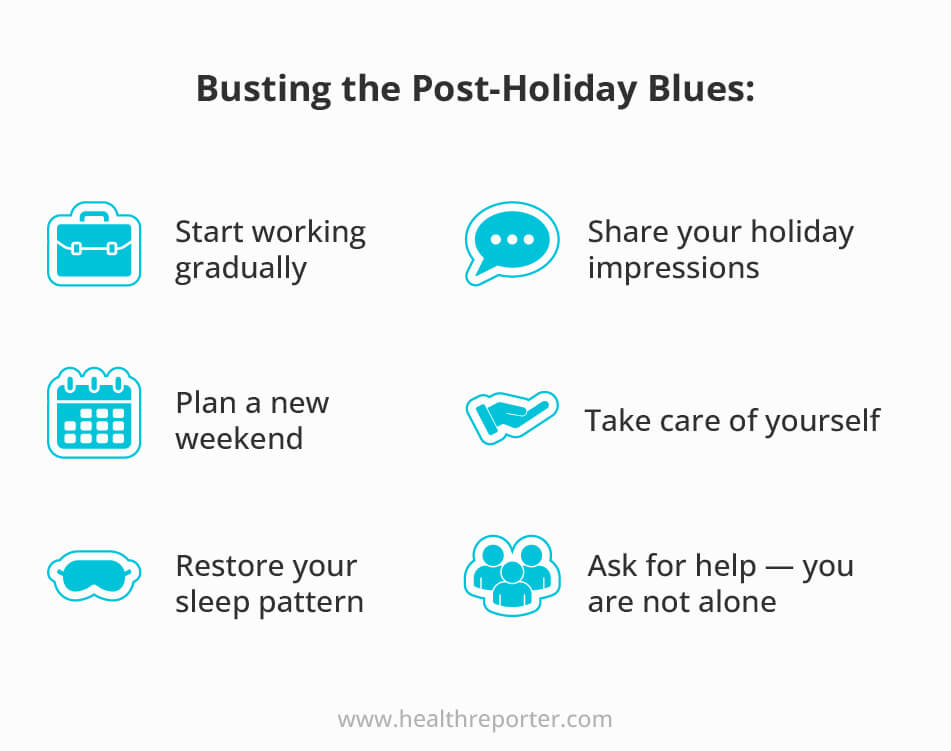
Conclusion
Overindulging in food and alcohol can negatively affect your physical and mental state. By prioritizing your health, you can enjoy the festivities without sacrificing your well-being.
However, remember that it is normal to feel overwhelmed and sad after the holidays. The festive mood doesn’t have to end when Christmas does – you can learn new things, enjoy life, and relax every day.
Don’t let the end of the holidays bring you down – find ways to incorporate the joy of the season into your routine.
Sources
- Festively fat: 1 in 4 are still carrying holiday weight they gained last year
https://studyfinds.org/holiday-weight-gain-last-year/ - Overeating: the health risks
https://pubmed.ncbi.nlm.nih.gov/11707547/ - Health benefits of dietary fiber:
https://pubmed.ncbi.nlm.nih.gov/19335713/ - The influence of eating rate on satiety and intake among participants exhibiting high dietary restraint:
https://www.ncbi.nlm.nih.gov/pmc/articles/PMC3253303/ - Mindful Eating – Harvard Health Publications:
https://www.health.harvard.edu/staying-healthy/mindful-eating - Alcohol advice — NHS Choices:
https://www.nhs.uk/live-well/alcohol-advice/ - The risks associated with alcohol use and alcoholism:
https://pubmed.ncbi.nlm.nih.gov/22330211/ - Biological water and its role in the effects of alcohol:
https://pubmed.ncbi.nlm.nih.gov/22330211/ - What’s a Standard Drink?
https://www.rethinkyourdrinking.ca/what-is-a-standard-drink/ - Alcohol advice — NHS Choices:
https://www.nhs.uk/live-well/alcohol-advice/ - 7 steps to cure your hangover – Harvard Medical School:
https://www.health.harvard.edu/staying-healthy/7-steps-to-cure-your-hangover-and-ginkgo-biloba-whats-the-verdict - Alcohol hangover: mechanisms and mediators
https://www.ncbi.nlm.nih.gov/pmc/articles/PMC6761819/ - 7 steps to cure your hangover – Harvard Medical School:
https://www.health.harvard.edu/staying-healthy/7-steps-to-cure-your-hangover-and-ginkgo-biloba-whats-the-verdict - Mental Health and the Holiday Blues:
https://www.nami.org/Press-Media/Press-Releases/2014/Mental-health-and-the-holiday-blues - Mental Health and the Holiday Blues:
https://bestdaypsych.com/dealing-with-post-holiday-blues/ - Vacationers Happier, but Most not Happier After a Holiday:
https://www.ncbi.nlm.nih.gov/pmc/articles/PMC2837207/

















































 Select your language:
Select your language: 





